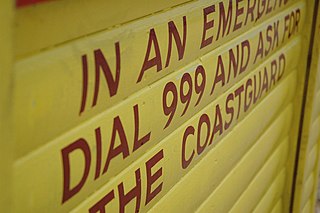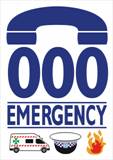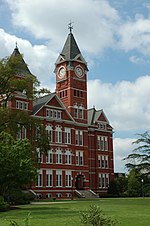Related Research Articles

9-1-1, also written 911, is an emergency telephone number for the North American Numbering Plan (NANP), one of eight N11 codes. Like other emergency numbers around the world, this number is intended for use in emergency circumstances only, and using it for any other purpose is a crime in most jurisdictions.
Enhanced 911, E-911 or E911 is a system used in North America to automatically provide the caller's location to 911 dispatchers. 911 is the universal emergency telephone number in the region. In the European Union, a similar system exists known as E112 and known as eCall when called by a vehicle.

Most public switched telephone networks have a single emergency telephone number that allows a caller to contact local emergency services for assistance. The emergency number differs from country to country; it is typically a three-digit number so that it can be easily remembered and dialed quickly. Some countries have a different emergency number for each of the different emergency services; these often differ only by the last digit.
Caller identification is a telephone service, available in analog and digital telephone systems, including voice over IP (VoIP), that transmits a caller's telephone number to the called party's telephone equipment when the call is being set up. The caller ID service may include the transmission of a name associated with the calling telephone number, in a service called Calling Name Presentation (CNAM). The service was first defined in 1993 in International Telecommunication Union—Telecommunication Standardization Sector (ITU-T) Recommendation Q.731.3.

999 is an official emergency telephone number in a number of countries which allows the caller to contact emergency services for urgent assistance. Countries and territories using the number include Bahrain, Bangladesh, Botswana, Eswatini, Ghana, Guernsey, Hong Kong, Ireland, Isle of Man, Jersey, Kenya, Macau, Malaysia, Mauritius, Poland, Qatar, Sudan, Saudi Arabia, Singapore, Trinidad and Tobago, Seychelles, Uganda, United Arab Emirates, United Kingdom, and Zimbabwe.
A voicemail system is a computer-based system that allows users and subscribers to exchange personal voice messages; to select and deliver voice information; and to process transactions relating to individuals, organizations, products, and services, using an ordinary phone. The term is also used more broadly to denote any system of conveying a stored telecommunications voice messages, including using an answering machine. Most cell phone services offer voicemail as a basic feature; many corporate private branch exchanges include versatile internal voice-messaging services, and *98 vertical service code subscription is available to most individual and small business landline subscribers.
The National Do Not Call Registry is a database maintained by the United States federal government, listing the telephone numbers of individuals and families who have requested that telemarketers not contact them. Certain callers are required by federal law to respect this request. Separate laws and regulations apply to robocalls in the United States.
A toll-free telephone number or freephone number is a telephone number that is billed for all arriving calls instead of incurring charges to the originating telephone subscriber. For the calling party, a call to a toll-free number from a landline is free of charge.
111 is the emergency telephone number in New Zealand. It was first implemented in Masterton and Carterton on 29 September 1958, and was progressively rolled out nationwide with the last exchanges converting in 1988.

Numbers on the Irish telephone numbering plan are regulated and assigned to operators by ComReg.

000 Emergency, also known as Triple Zero or Triple 0, and sometimes stylised Triple Zero (000), is the primary national emergency telephone number in Australia. The Emergency Call Service is operated by Telstra, and overseen by the Australian Communications and Media Authority (ACMA), and is intended only for use in life-threatening or time-critical emergencies.

Caller ID spoofing is the practice of causing the telephone network to indicate to the receiver of a call that the originator of the call is a station other than the true originating station. This can lead to a caller ID display showing a phone number different from that of the telephone from which the call was placed.
Voice phishing, or vishing, is the use of telephony to conduct phishing attacks.
A robocall is a phone call that uses a computerized autodialer to deliver a pre-recorded message, as if from a robot. Robocalls are often associated with political and telemarketing phone campaigns, but can also be used for public-service or emergency announcements. Some robocalls use personalized audio messages to simulate an actual personal phone call. In 2019, the United States Congress passed legislation expanding the regulation of robocalls.

Phone sex is a conversation between two or more consenting people by means of the telephone which is sexually explicit and is intended to provoke sexual arousal in one or more participants. All parties participate voluntarily; it is typically accompanied by masturbation. As a practice between individuals temporarily separated, it is as old as dial telephones, on which no operator could eavesdrop (1930s–1950s). In the later 20th century businesses emerged offering, for a fee, sexual conversations with a phone sex worker. The remainder of this article deals with these paid phone sex services.
Telemarketing fraud is fraudulent selling conducted over the telephone. The term is also used for telephone fraud not involving selling.
A non-geographic number is a type of telephone number that is not linked to any specific locality. Such numbers are an alternative to the traditional 'landline' numbers that are assigned geographically using a system of location-specific area codes. Non-geographic numbers are used for various reasons, from providing flexible routing of incoming phone calls to generating revenue for paid-for services.
Auburn University has several notable traditions, many related to its varsity teams, the Auburn Tigers.
A prank call is a telephone call intended by the caller as a practical joke played on the person answering. It is often a type of nuisance call.
Phone hacking is the practice of exploring a mobile device often using computer exploits to analyze everything from the lowest memory and central processing unit levels up to the highest file system and process levels. Modern open source tooling has become fairly sophisticated as to be able to "hook" into individual functions within any running App on an unlocked device and allow deep inspection and modification of their functions.
References
- 1 2 3 "5 phone numbers that will change your life". MSNBC/Today. 2007-11-27. Archived from the original on 26 April 2008. Retrieved 2008-04-28.
- ↑ "Phone Numbers That Can Change Your Life". Today Show . 2007-11-27.
- ↑ Bryan Bullock (2006-05-26). "Fact lines help students, entertain bar patrons". The Lantern: The Student Voice of Ohio State University. Archived from the original on 2011-08-06. Retrieved 2008-04-28.
- ↑ Williams, Corey (28 January 2015). "UPDATE: Juvenile found responsible for Student Center bomb threat". The Auburn Plainsman. Auburn, AL. Archived from the original on 16 October 2014. Retrieved 2015-01-28.
